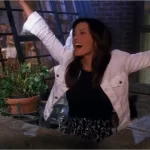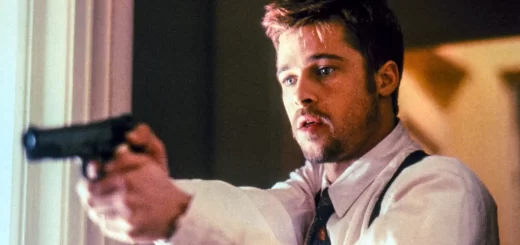The TV Room: Broad City Season 2
Recently, in writing about the final season of Glee, I concluded by praising the series for using its cultural spotlight to take on the role of television’s social equality polemicist. That got me thinking about another show that just concluded a season, Comedy Central’s Broad City. In its own way, the series is just as vital, not because it shouts its progressive demands the way Glee did but because it treats them not like demands at all. It simply assumes them as the day-to-day truths of its world.
Sometimes, spending so many hours in an internet world that both allows the worst of modern humanity to run rampant and gives the rest of us the ability to shine a light on it and oppose it, I can overlook just how disconnected from my day to day life that outrage loop can be. I choose to spend most of my time with respectable, well-adjusted, intelligent people. We have fun, lively discussions. We are allowed the luxury of presupposing an absence of homophobia, racism, sexism and so forth within our friend group. Such is the life of Broad City‘s Abbi (Abbi Jacobson) and Ilana (Ilana Glazer).
This season, we saw Abbi pegging a guy in a scenario that wholly avoided gay panic or shame. We saw Ilana have a torrid, week-long romance with a woman who looked just like her and, despite Ilana’s heretofore hetero identity, this thread was never framed in the context of “experimenting” and the subsequent hand-wringing baggage that comes with that. We saw a bunch of rich finance bros genuinely cheer Abbi on when they mistakenly thought she was undergoing an FTM transition. And, in one of my favorite moments in the entire series, we saw Ilana’s roommate, Jaime, get misty-eyed after becoming a citizen and celebrating with free booze and make-out sessions with straight guys.
These plot points were not, at least on the surface, intentionally subversive. In most cases, they weren’t even the comedic premises. They were more like threads in the backdrop. The nonchalance with which unconventional (for television) sexuality is treated by Broad City, mixed with the ultra-rare trait of taking its characters’ low-rung financial status seriously, makes the show into something refreshingly recognizable. It may be a world where frozen yogurt places have infinite flavors and stuffed animals come to life and help terrorize Whole Foods, but philosophically, it resembles the reality I inhabit more than any other show on TV.
Broad City doesn’t completely obscure its social relevance. When, for instance, Ilana insists to a rich pre-teen that his lack of perspective makes him the most underprivileged person on the subway, the show is overtly self-aware about how ridiculous that is. And, of course, that irony makes it hilarious.
That’s what I may have overlooked in these paragraphs. I’ve talked about Broad City as being quietly revolutionary but I’ve neglected to mention that it is, first and foremost, brazenly funny. The comedy is not the Trojan horse that delivers the message, because Jaconson and Glazer aren’t interested in sending a message at all. That’s precisely what makes Broad City one of the best shows on television.































